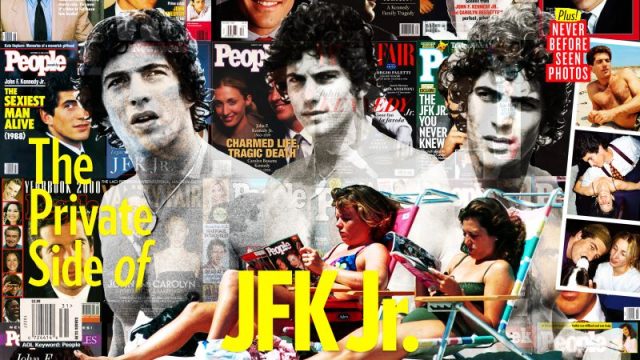Greetings, my little dumplings! How are we all this week? Also, what do we all think spine #1000 will be in the Criterion collection? On with the articles…
On the 12th, Gary Thompson of The Philadelphia Inquirer talked about the death of comedy movies:
“There are those who worry about antibiotic resistance and flesh-eating bacteria, or the fact that it hit 90 degrees in Anchorage for the first time and the melting permafrost is releasing ancient life forms. Those things are worth worrying about.
I have my eye on something that to me is more troubling: I refer to the recent plummeting share of movie dollars that people spend on comedies, because Hollywood isn’t making them, or because America is in a bad mood, or both.”
Maris Kreizman over at Lithub, talked to the always entertaining John Waters on the 15th:
“The legendary filmmaker, author, and speaker John Waters is a font of wisdom both profound and profane. In Mr. Know-It-All, an essay collection that recalls his film career and his adventures past and present, he dispenses prescriptive advice in a way that only he can: ‘Young filmmakers, go Hollywood whenever you can. It’s not lonely at the top, I promise you,’ and ‘The urge to smell a fart is universal. Remember that.'”
On the 16th, Kate Tuttle of The New York Times, analyzed the phenomenon of true crime among women, something that I also wrote about for a writing workshop I took in grad school:
“A 2010 study found that around 70 percent of Amazon reviews of true-crime books are by women (compared with books about war, where 82 percent of the reviews are by men). Something is going on here, but what? Men, the statistics tell us, are involved in violent crime — as perpetrators and victims alike — in much larger numbers than women. When women are connected to crime, we’re much more likely to be victims or survivors. Perhaps our fascination with these stories stems in part from wanting to learn from them. If a woman escaped her attacker in this particular way, we think, perhaps I could too.”
K. Austin Collins discussed the Law & Order: SVU, based on Jeffrey Epstein, for Vanity Fair, on the 17th:
“‘Flight’ opens with a disclaimer: ‘The following story is fictional and does not depict any actual person or event.’ A usual sighting in the land of SVU, though particularly eerie while rewatching this episode in 2019. The episode is unmistakably inspired by the case of Jeffrey Epstein, who was arrested this month on charges of sex trafficking conspiracy and sex trafficking minors in Florida and New York (and pleaded not guilty to all charges). But this episode tackles an earlier case, when he was convicted of soliciting minors for prostitution in 2008. For the latter charge, he served only 13 months in prison courtesy of a plea bargain, despite federal prosecutors identifying up to 36 underage victims.”
On the 15th, Matt Wedge of The Daily Grindhouse, launched a three-part series on greatest characters in Larry Cohen’s films.
“Today would have been the 83rd birthday of writer/producer/director/raconteur/all-around legend Larry Cohen. The world lost this greatest of all American independent filmmakers earlier this year, but he left behind a rich catalog of films and TV shows stretching back to the ’50s and the golden age of live television. I decided to celebrate his birthday this week by doing my personal rundown of the fifty greatest characters from his films. The only rule I gave myself was that the character had to be from a movie he wrote and directed—no cheating and including characters from films he only wrote (hence the lack of characters from the MANIAC COP series or BEST SELLER). I will be listing ten characters a day with the top ten wrapping it up on Friday. Obviously, this is a very subjective list, so sound off in the comments if you think I got it wrong or let me know on Twitter by clicking the link in my bio at the bottom of this page. Let’s honor Larry Cohen’s life and legacy by watching and talking about his movies. I think he would have gotten a kick out of the attention.”
Part 2
Part 3
Kelly Faircloth looked at how magazines portrayed John Kennedy Jr., on Jezebel, on the 17th:
“A highly specific set of circumstances, both cultural and chronological, combined to make JFK Jr as famous as he was, but it’s impossible to separate his anointed place in American culture from the media that so loved him, especially magazines. The internet has completely transformed the way we consume information, so it’s easy to forget the power of general-interest magazines, like Time and Life, during the midcentury—and the Kennedy family looked very, very good in those pages. First, there was his childhood as ‘John John,’ the adorable toddler of a young, photogenic president; his place in the national consciousness was cemented by the famous shot of Kennedy saluting his father’s casket. The image would follow him for the rest of his life, even as he repeatedly reminded everyone who asked him that he had no memory of the moment, because he was three years old.”
Finally, on the 18th, Sam Thielman of The Guardian, said goodbye to Alan Moore:
“Before Moore, and the likes of Frank Miller, Dave Sim and the Hernandez brothers, the idea that serialised comics could amount to literature was laughable, and that adults could enjoy them without irony creepy. But Moore has had a preternatural grasp of the intricacies of a genre – superheroes – widely considered to be devoid of them.”
Enjoy!

